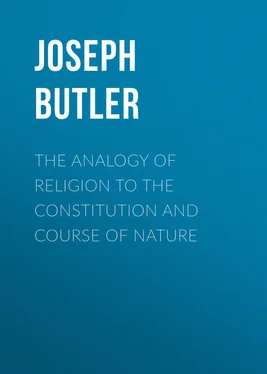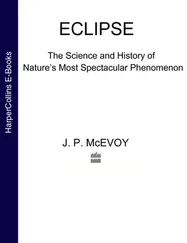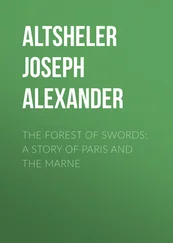Joseph Butler - The Analogy of Religion to the Constitution and Course of Nature
Здесь есть возможность читать онлайн «Joseph Butler - The Analogy of Religion to the Constitution and Course of Nature» — ознакомительный отрывок электронной книги совершенно бесплатно, а после прочтения отрывка купить полную версию. В некоторых случаях можно слушать аудио, скачать через торрент в формате fb2 и присутствует краткое содержание. Жанр: foreign_antique, foreign_prose, на английском языке. Описание произведения, (предисловие) а так же отзывы посетителей доступны на портале библиотеки ЛибКат.
- Название:The Analogy of Religion to the Constitution and Course of Nature
- Автор:
- Жанр:
- Год:неизвестен
- ISBN:нет данных
- Рейтинг книги:3 / 5. Голосов: 1
-
Избранное:Добавить в избранное
- Отзывы:
-
Ваша оценка:
- 60
- 1
- 2
- 3
- 4
- 5
The Analogy of Religion to the Constitution and Course of Nature: краткое содержание, описание и аннотация
Предлагаем к чтению аннотацию, описание, краткое содержание или предисловие (зависит от того, что написал сам автор книги «The Analogy of Religion to the Constitution and Course of Nature»). Если вы не нашли необходимую информацию о книге — напишите в комментариях, мы постараемся отыскать её.
The Analogy of Religion to the Constitution and Course of Nature — читать онлайн ознакомительный отрывок
Ниже представлен текст книги, разбитый по страницам. Система сохранения места последней прочитанной страницы, позволяет с удобством читать онлайн бесплатно книгу «The Analogy of Religion to the Constitution and Course of Nature», без необходимости каждый раз заново искать на чём Вы остановились. Поставьте закладку, и сможете в любой момент перейти на страницу, на которой закончили чтение.
Интервал:
Закладка:
PART I.
Natural Religion
CHAPTER I.
A FUTURE LIFE. 27 27 [This chapter Dr. Chalmers regards as the least satisfactory in the book: not because lacking in just analogies, but because infected with the obscure metaphysics of that age. His reasoning, however, only serves to show that B. has perhaps made too much of the argument from the indivisibility of consciousness; and by no means that he does not fairly use it.
Strange difficulties have been raised by some concerning personal identity, or the sameness of living agents, implied in the notion of our existing now and hereafter, or in any two successive moments; which, whoever thinks it worth while, may see considered in the first dissertation at the end of this treatise. But without regard to any of them here, let us consider what the analogy of nature, and the several changes which we have undergone, and those which we know we may undergo without being destroyed, suggest, as to the effect which death may, or may not, have upon us; and whether it be not from thence probable, that we may survive this change, and exist in a future state of life and perception.
I. From our being born into the present world in the helpless imperfect state of infancy, and having arrived from thence to mature age, we find it to be a general law of nature in our own species, that the same creatures, the same individuals , should exist in degrees of life and perception, with capacities of action, of enjoyment and suffering, in one period of their being, greatly different from those appointed them in another period of it. In other creatures the same law holds. For the difference of their capacities and states of life at their birth (to go no higher) and in maturity; the change of worms into flies, and the vast enlargement of their locomotive powers by such change: and birds and insects bursting the shell of their habitation, and by this means entering into a new world, furnished with new accommodations for them, and finding a new sphere of action assigned them; these are instances of this general law of nature. Thus all the various and wonderful transformations of animals are to be taken into consideration here. The states of life in which we ourselves existed formerly, in the womb and in our infancy, are almost as different from our present in mature age, as it is possible to conceive any two states or degrees of life can be. Therefore that we are to exist hereafter, in a state as different (suppose) from our present, as this is from our former, is but according to the analogy of nature; according to a natural order or appointment of the very same kind, with what we have already experienced.
II. We know we are endued with capacities of action, of happiness and misery: for we are conscious of acting, of enjoying pleasure and suffering pain. Now that we have these powers and capacities before death, is a presumption that we shall retain them through and after death; indeed a probability of it abundantly sufficient to act upon, unless there be some positive reason to think that death is the destruction of those living powers; because there is in every case a probability, that all things will continue as we experience they are, in all respects, except those in which we have some reason to think they will be altered. This is that kind 28 28 I say kind of presumption or probability; for I do not mean to affirm that there is the same degree of conviction, that our living powers will continue after death, as there is, that our substances will.
of presumption or probability from analogy, expressed in the very word continuance , which seems our only natural reason for believing the course of the world will continue to-morrow, as it has done so far as our experience or knowledge of history can carry us back. Nay, it seems our only reason for believing, that any one substance now existing will continue to exist a moment longer; the self-existent substance only excepted. Thus if men were assured that the unknown event, death, was not the destruction of our faculties of perception and of action, there would be no apprehension that any other power or event, unconnected with this of death, would destroy these faculties just at the instant of each creature’s death; and therefore no doubt but that they would remain after it; which shows the high probability that our living powers will continue after death, unless there be some ground to think that death is their destruction. 29 29 Destruction of living powers , is a manner of expression unavoidably ambiguous; and may signify either the destruction of a living being, so as that the same living being shall be incapable of ever perceiving or acting again at all ; or the destruction of those means and instruments by which it is capable of its present life, of its present state of perception and of action . It is here used in the former sense. When it is used in the latter, the epithet present is added. The loss of a man’s eye is a destruction of living powers in the latter sense. But we have no reason to think the destruction of living powers, in the former sense, to be possible. We have no more reason to think a being endued with living powers, ever loses them during its whole existence, than to believe that a stone ever acquires them.
For, if it would be in a manner certain that we should survive death, 30 30 [The next paragraph indicates that Butler does not, as Chalmers thinks, consider this argument as “handing us over to an absolute demonstration.” It just places all arguments for and against the soul’s future life, in that balanced condition, which leaves us to learn the fact from revelation, free from presumptions against its truth. This view of the case entirely relieves the objection as to the future life of brutes; and shows how entirely we must rely on revelation, as to the future, both of man and beast.]
provided it were certain that death would not be our destruction, it must be highly probable we shall survive it, if there be no ground to think death will be our destruction.
Though I think it must be acknowledged, that prior to the natural and moral proofs of a future life commonly insisted upon, there would arise a general confused suspicion, that in the great shock and alteration which we shall undergo by death, we, i. e. our living powers, might be wholly destroyed; yet even prior to those proofs, there is really no particular distinct ground or reason for this apprehension at all, so far as I can find. If there be, it must arise either from the reason of the thing , or from the analogy of nature .
But we cannot argue from the reason of the thing , that death is the destruction of living agents, because we know not at all what death is in itself; but only some of its effects, such as the dissolution of flesh, skin, and bones. These effects do in no wise appear to imply the destruction of a living agent. Besides, as we are greatly in the dark, upon what the exercise of our living powers depends, so we are wholly ignorant what the powers themselves depend upon; the powers themselves as distinguished, not only from their actual exercise, but also from the present capacity of exercising them; and as opposed to their destruction: for sleep, or certainly a swoon, shows us, not only that these powers exist when they are not exercised, as the passive power of motion does in inanimate matter; but shows also that they exist, when there is no present capacity of exercising them: or that the capacities of exercising them for the present, as well as the actual exercise of them, may be suspended, and yet the powers themselves remain undestroyed. Since then we know not at all upon what the existence of our living powers depends, this shows further, there can no probability be collected from the reason of the thing, that death will be their destruction: because their existence may depend upon somewhat in no degree affected by death; upon somewhat quite out of the reach of this king of terrors. So that there is nothing more certain, than that the reason of the thing shows us no connection between death and the destruction of living agents.
Читать дальшеИнтервал:
Закладка:
Похожие книги на «The Analogy of Religion to the Constitution and Course of Nature»
Представляем Вашему вниманию похожие книги на «The Analogy of Religion to the Constitution and Course of Nature» списком для выбора. Мы отобрали схожую по названию и смыслу литературу в надежде предоставить читателям больше вариантов отыскать новые, интересные, ещё непрочитанные произведения.
Обсуждение, отзывы о книге «The Analogy of Religion to the Constitution and Course of Nature» и просто собственные мнения читателей. Оставьте ваши комментарии, напишите, что Вы думаете о произведении, его смысле или главных героях. Укажите что конкретно понравилось, а что нет, и почему Вы так считаете.












